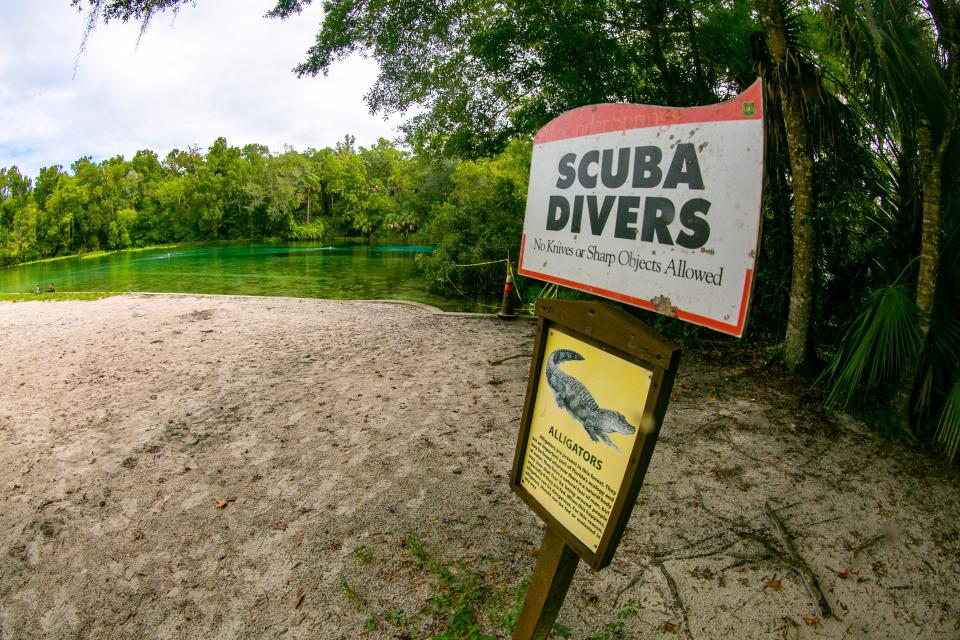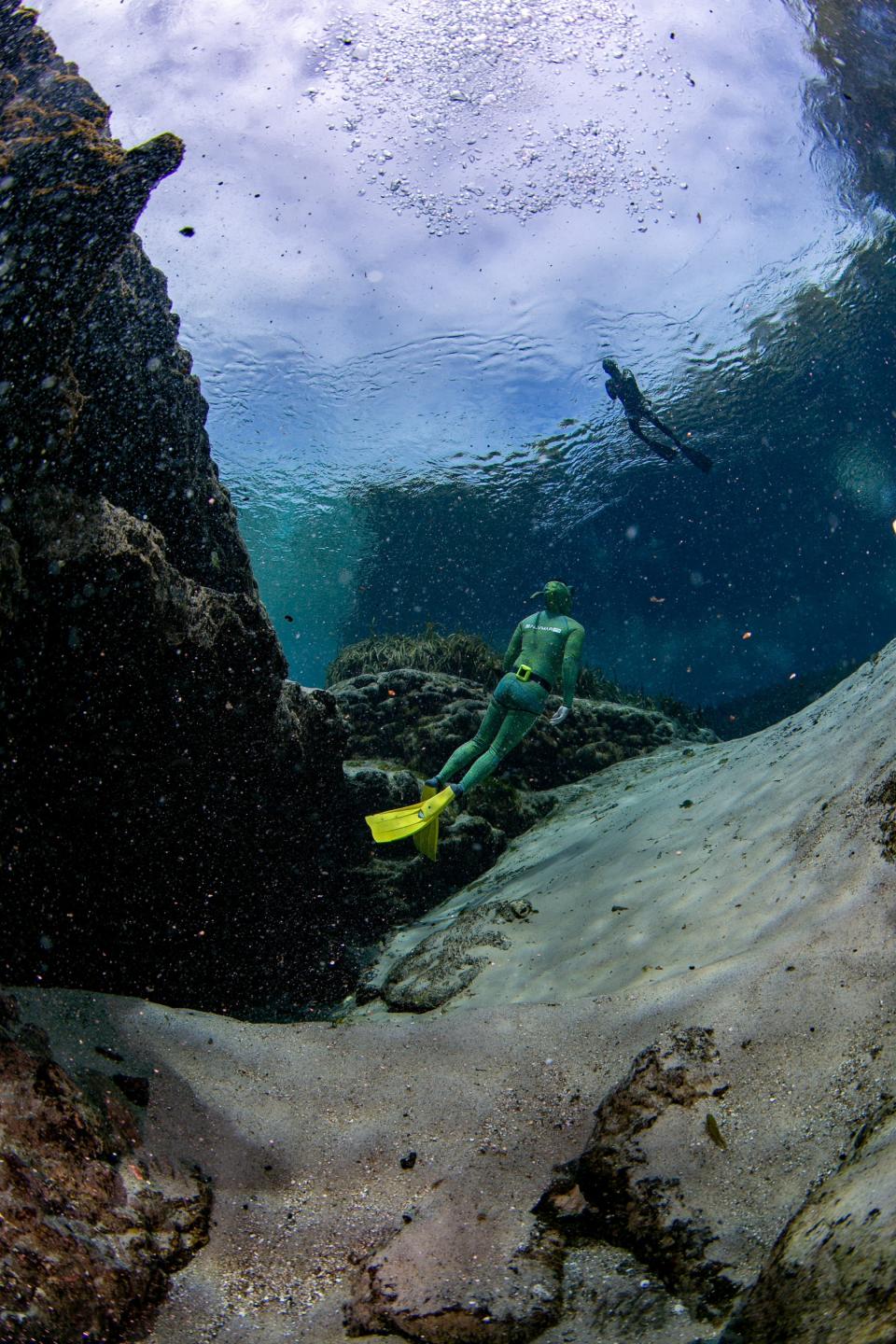'Really lucky': Florida woman bit on head by 9-foot alligator walks away with scratches
A Florida woman was bitten in the head by a 9-foot long alligator while snorkeling at a park swimming hole over the weekend.
Marissa Carr, 20, told Fox 35 Orlando that she feels "lucky" walking away from the encounter with just two scratches on her forehead.
Florida Fish and Wildlife Conservation Commission told USA TODAY Tuesday it received a call on Sunday about a woman who was bitten at Alexander Springs Recreation Area, approximately 60 miles north of Orlando.
When FWC responded to the scene Sunday, Carr was transported to a nearby hospital for treatment. A nuisance alligator trapper also responded to the scene and removed the 9-foot-long alligator from the park.

Alligator-bite victim says snorkeling gear saved her
Carr and her friend were snorkeling at Alexander Springs, a poplar spot for divers because of the large, fresh spring and geological composition.
Carr said the incident happened so fast she didn't realize it was an alligator that had bitten her.
"I ripped the mask off and I turn and see the two little eyes sticking out of the water," she told Fox 35. It wasn't until she got out of the water that she started to feel pain on her face and neck, according to the outlet.
She was wearing a full-face snorkel mask. Because it protected her face and made her head bigger, she thinks that made it so the alligator couldn't get a good grip on her, Fox 35 reported.
"Sounds bad, but it biting my head is probably the best place that it could have been because like, if it would have got my arm and that it would have got a better grip on my arm and I could have lost my arm or just like my life in general. So like, I think the head he didn't get a good grip of it," she told Fox 35.
"So I think I'm genuinely just really, really lucky."
This was the second alligator-related incident at Alexander Springs in less than a week, according to the U.S. Forest Service.

FWC trapper relocated 9-foot alligator
During it's response to the attack on Carr, FWC utilized a contracted nuisance alligator trapper to remove the alligator.
"The FWC places the highest priority on public safety and administers a Statewide Nuisance Alligator Program (SNAP). The goal of SNAP is to proactively address alligator threats in developed areas, while conserving alligators in areas where they naturally occur," the FWC said in an emailed statement to USA TODAY.
The agency also reminded the public that those living in the state of Florida with alligator concerns can call the Nuisance Alligator Hotline at 866-FWC-GATOR.
Here are the other FWC tips for alligator safety:
Keep a safe distance if you see an alligator.
Keep pets on a leash and away from the water’s edge. Pets often resemble alligators’ natural prey.
Swim only in designated swimming areas during daylight hours and without your pet. Alligators are most active between dusk and dawn.
Never feed an alligator. It’s illegal and dangerous. When fed, alligators can lose their natural wariness and instead learn to associate people with the availability of food.
Contributing: Julie Garisto, Leesburg Daily Commercial
Florida wildlife: Can alligators help control Florida's python population? A new study provides clues
This article originally appeared on USA TODAY: Alligator bites Florida woman at Alexander Springs Recreation Area

